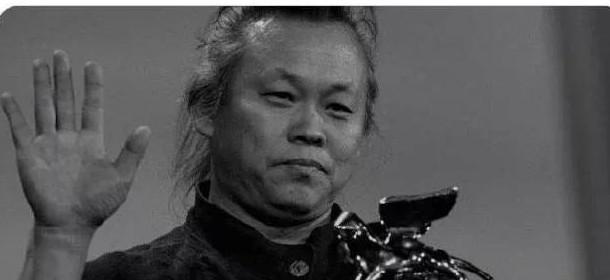In the early hours of yesterday morning, the famous South Korean director Kim Ki-duk died in Latvia at the age of 59 due to complications of the new crown. A little fan girl next to me was very sad to send a circle of friends.

Dust is like water. Just like a movie he made in 2003, "Spring, Summer, Autumn, Winter and Spring", the cycle of life continues again and again.
Kim Ki-duk is a famous Korean director and a master of contemporary cinema. His fame predates Bong Joon-ho, Park Chan-wook and other Korean big names. His works have been shortlisted for major film festivals many times, breaking the record of zero awards in Korean film history. His major works include "The Net", "The Holy Death", "The Samaritan Girl", "Bad Boy", "The Empty Room", etc., as well as "Spring, Summer, Autumn and Winter Another Season". There are so many excellent works, and now, his sudden death is shocking and regrettable, and it is also the reason why the little fan girl around him is sad.
Although he is well-known in the world film industry, Kim Ki-duk is not welcomed by Korean audiences, so that the country has no room. Because the theme of his works is always about the 10% of the marginalized people in South Korea, and the film is also mostly metaphorically erotic, he has been criticized by the Korean film circle as a "prostitute director", which seems to be recognized by the world after he made three prostitute-themed films in succession. As a people with super self-esteem and a contemptuous counterpart, how can these directors easily let go of his defilement of this country?
Kim Ki-duk's films have been boycotted in South Korea, and even spurned by the whole people. His country betrayed him.
But his work will live on forever, commemorating the talented director. Just like this "Spring, Summer, Autumn, Winter and Spring".
"Spring, Summer, Autumn, Winter and Spring" is a film directed by Kim Ki-duk and starring Kim Young-min, Oh Young-so and Kim Ki-duk. The theme carries a zen idea of the cycle of good and evil in human nature and the cycle of life in the world.
The film freezes the plot of the story in different seasons: in the spring, the old monk and the child monk live in the isolated temple. The child monk is doing the sins of ignorance and the redemption of the old monk; in the summer, the child monk has grown up to be a man, and he has joined the young girl who came to the temple to recuperate, and the desire is indulged, and the old monk is expelled from the world; in the autumn, the young monk returns to the temple, but the police follow him and arrests him, and the ground is already a murderer, and the old monk intervenes to ignite it to love and hate; in winter, the old monk dies. Young monks return to the monastery to practice. One night, an abandoned baby was placed in front of the temple. The monks adopted him. And so, his story began again!
The narrative of the film is very clear, that is, in chronological order: spring, summer, autumn, winter, and another spring. In fact, this is just a timeline presented by the narrative, with rich metaphorical meanings, intertwining Buddhism and seasonal meanings, spring birth, including good and evil coexistence; summer is long, containing desire and indulgence; autumn harvest, including nirvana rebirth; winter contains salvation and regeneration. This also echoes the theme of reincarnation in the film.
The scenes and sets of this film are also full of Buddhist thoughts. Surrounded by mountains, surrounded by lonely water, the temple stands alone. The tide rises and falls, the doors open and close, and you can enjoy Zen. Walking through it once is also a lifetime of practice!
One of the major styles of Kim Ki-duk's films is that the lines are scarce, like the morning star, and all the gratitude is also in the silence. This film brings this style to life!
The actors in the film are also acting like a heart, just like the tone of the film: people are like their situation, scenery is like their people, and the scenes are blended. It is behind this peace that the reincarnation of the earthly world is staged, and if you understand it, will you be merciful and joyful, and pass away with a thought?
Kim Ki-duk, in addition to the film full of themes disgusted by South Koreans, his constant sexual scandals are also boiling in society, which is also an important reason for his abandonment.
Dust is ticking.
People are like water.
In the name of excellent works, I miss Kim Ki-duk, in every spring, summer, autumn and winter.